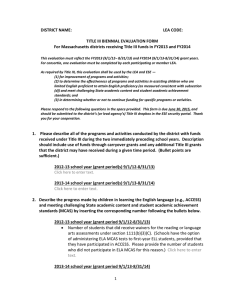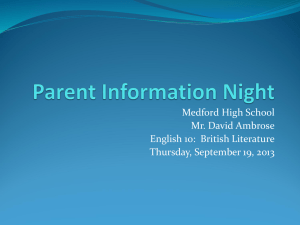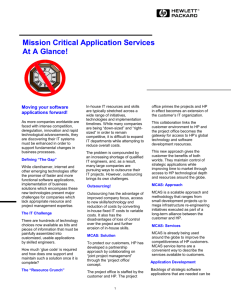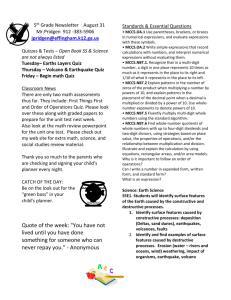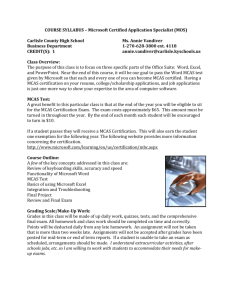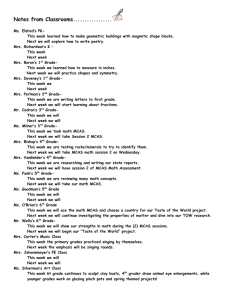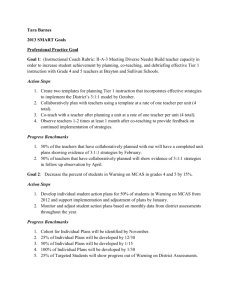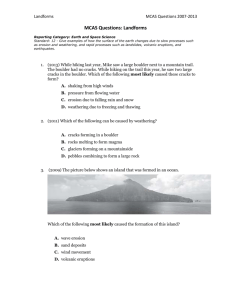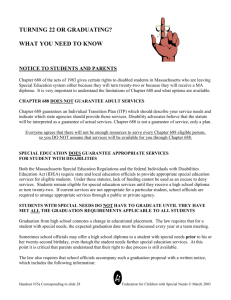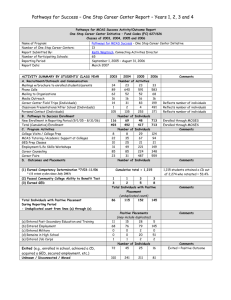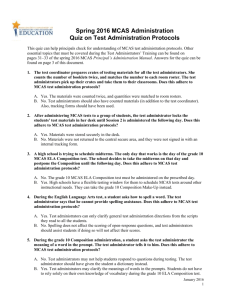Parents are Powerful
advertisement
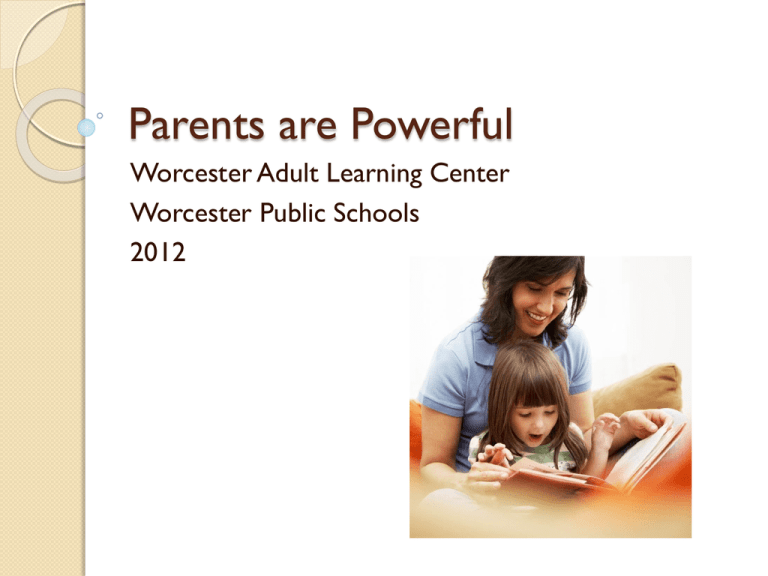
Parents are Powerful Worcester Adult Learning Center Worcester Public Schools 2012 Workshop Overview What is parent involvement and why is it important? What can parents do to get more involved in their children’s education? YOU make a BIG Difference! Helps your child: 1. 2. 3. 4. Higher grades Better attendance and homework completion Fewer behavior problems Higher graduation rate! YOU make a BIG Difference! Benefits for the schools: 1. 2. 3. 4. Improved teacher morale! Happier teachers!! Improved school climate! Better reputations in the community! Everyone works together! It’s never too Early or Too Late! Begin early to know and support your child’s development. Become familiar with participate in your child's early childhood programs. Use different strategies to become involved as your child grows! Time at home with your child is Valuable!! Have high expectations. Praise your child’s accomplishments. READ as a Family! Have a quiet place to study. Stay involved with education. YOUR RIGHTS! Access information about your child’s school. Provide input about your child’s education. Participate in decision making at your child’s school. Massachusetts Standards: Curriculum Frameworks Mathematics Science & Technology/Engineering History & Social Science English Language Arts World Languages Health Art What is “MCAS?” MCAS stands for: Massachusetts Comprehensive Assessment System Who takes them? ALL students in MA public schools must take the MCAS. General Education Special Education English Language Learners MCAS Tests Students in: Mathematics English Language Arts (ELA) Science and Technology/ Engineering To earn a High School Diploma, students MUST: Score a minimum of 240(Proficiency) on ELA and Math MCAS Tests. OR Score a minimum of 220 (Needs Improvement) on ELA and Math MCAS tests AND complete an Educational Proficiency Plan (EPP). AND Score 220 on one high school Science & Technology/Engineering MCAS test. 3 Report Cards??? YES! 1. Student Report Card- information about your child’s classroom performance. 2. MCAS Parent/Guardian Report- how did you child perform on the MCAS? 3. School Report Card- report on the SCHOOL’S Performance in teaching all children! At Home….. They are watching YOU! Make sure your child goes to school everyday! Good Study habits! LIMIT and SUPERVISE “Screen Time”. Go to the LIBRARY! READ with them, listen to the read to you! TALK and ASK questions!! Be a role model by reading regularly. Review their homework at a scheduled time each night. PRAISE them for a good job!! Use daily activities to find ways to teach them! BE INVOLVED! Get involved with the SCHOOL! Talk to your child’s teacher OFTEN! Attend parentteacher conferences. ASK Questions! Join the school council. Get to know your child’s friends! Parent’s Frequently Asked Questions about Education WHAT CAN I DO IF I DON’T UNDERSTAND MY CHILD’S HOMEWORK? It’s okay!! Provide support and structure at your home so your child can do their homework. Look for neatness and completeness TALK TO THE TEACHER! Tell the teacher you are trying to help at home, but need more support! Attend family events at the school, like Math Nights. My Child scores in the Warning Range on MCAS! Ask the teacher to provide information about your child’s strengths and weaknesses! Ask the teacher what you can do at home for extra support for your child. Ask for tutoring, after school help or summer support for your child. What if my child needs special help? Talk with the teacher! Seek help from the specialists at school, e.g., reading teacher, counselor. If your child is not in the right program ASK for a change! Ask for extra tutoring programs before or after school. If more help is needed, consider begining evaluations under Special Education. My child is just learning English… Your child must receive quality education, by a highly qualified teacher. Must learn English and other subjects at the same academic levels as all other students. You must receive information regarding your child’s performance in the language YOU best understand. What about Immigration Status? Students without documentation have the right to attend public elementary and high schools. Public Schools may NOT: 1. 2. 3. Deny admission to a student based on an undocumented status. Require students or parents to disclose their immigration status. Require social security numbers to be admitted to school. We don’t have a home… but YOU still have rights!! Attend school, including public preschool. Continue in the school they last attended. Receive transportation to school and school programs. Participate in a school programs with all other children. Enroll without giving a permanent address. Attend classes immediately. Receive the same support and services as other students. Obtain free lunch (and breakfast, if offered). Three Points to Remember! Your children have the right to a good education. And you have the rights to see that they get it. Educators may be experts in how to teach, but YOU are experts about your own children. Your children NEED YOU to stay involved all the way through high school! YOU are the most important person in your children’s lives. No one will have a bigger impact on whether they do well- in school and through life! And no one cares more about them than you do!! Only with your guidance and involvement will your children learn all they need to succeed in the future!
